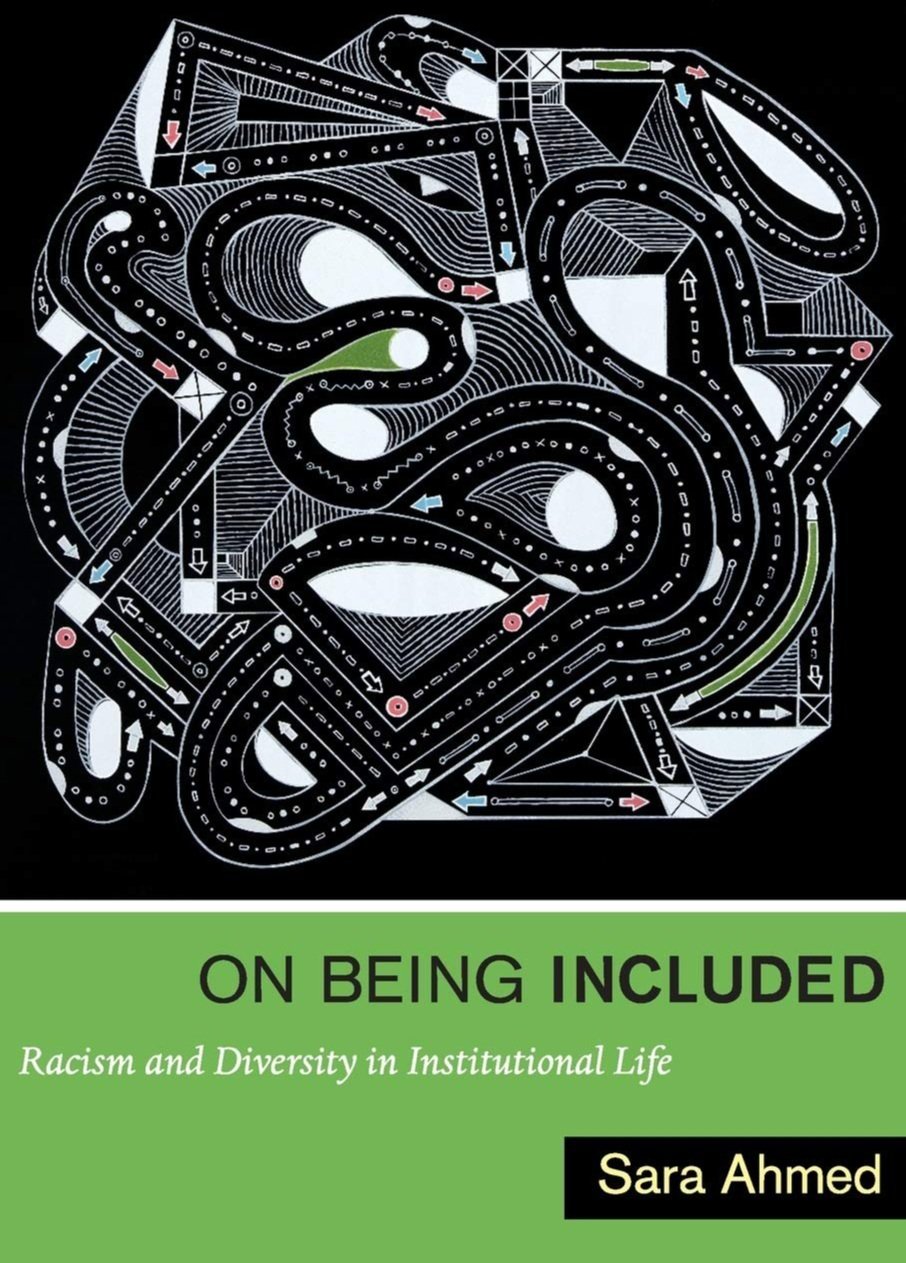 Image 1 of 2
Image 1 of 2

 Image 2 of 2
Image 2 of 2



Sara Ahmed's On Being Included [4-week Reading Group, $150 suggested]
***This class has already started, but interested students can audit this course asynchronously.
Instructor: Dahiya | Mondays May 2-23 | 8:00-9:30 PM ET
Most institutional diversity initiatives are dead on arrival. What is the history of diversity, anyway? In this reading group, we carefully study Sara Ahmed's On Being Included: Racism and Diversity in Institutional Life in order to first understand the limits and pitfalls of current approaches to diversity. Our goal will be to then ask ourselves how we might practice "diversity" in a different, transformational way.
Book Synopsis from Duke University Press:
"What does diversity do? What are we doing when we use the language of diversity? Sara Ahmed offers an account of the diversity world based on interviews with diversity practitioners in higher education, as well as her own experience of doing diversity work. Diversity is an ordinary, even unremarkable, feature of institutional life. Yet diversity practitioners often experience institutions as resistant to their work, as captured through their use of the metaphor of the "brick wall." On Being Included offers an explanation of this apparent paradox. It explores the gap between symbolic commitments to diversity and the experience of those who embody diversity. Commitments to diversity are understood as "non-performatives" that do not bring about what they name. The book provides an account of institutional whiteness and shows how racism can be obscured by the institutionalization of diversity. Diversity is used as evidence that institutions do not have a problem with racism. On Being Included offers a critique of what happens when diversity is offered as a solution. It also shows how diversity workers generate knowledge of institutions in attempting to transform them."
—
We depend on a mix of direct student donations and supplemental donations to make all classes pay-what-you-can. Please pick the pricing tier that corresponds with your needs and that you are able to pay now. If you would like to pay in installments, make your first payment now and make a note on your check-out form. If you would like to donate more later in the term, you can always come back and use the “Make a One Time Donation” button! To use a full scholarship, just pick the $3 tier to cover site/processor fees.
If at any point up to 48 hours before your first class session you realize you will be unable to take the class, we will work with you to reallocate your funds to a future class, to another student’s scholarship, or refund it. After classes begin, we are only able to make partial refunds and adjustments.
***This class has already started, but interested students can audit this course asynchronously.
Instructor: Dahiya | Mondays May 2-23 | 8:00-9:30 PM ET
Most institutional diversity initiatives are dead on arrival. What is the history of diversity, anyway? In this reading group, we carefully study Sara Ahmed's On Being Included: Racism and Diversity in Institutional Life in order to first understand the limits and pitfalls of current approaches to diversity. Our goal will be to then ask ourselves how we might practice "diversity" in a different, transformational way.
Book Synopsis from Duke University Press:
"What does diversity do? What are we doing when we use the language of diversity? Sara Ahmed offers an account of the diversity world based on interviews with diversity practitioners in higher education, as well as her own experience of doing diversity work. Diversity is an ordinary, even unremarkable, feature of institutional life. Yet diversity practitioners often experience institutions as resistant to their work, as captured through their use of the metaphor of the "brick wall." On Being Included offers an explanation of this apparent paradox. It explores the gap between symbolic commitments to diversity and the experience of those who embody diversity. Commitments to diversity are understood as "non-performatives" that do not bring about what they name. The book provides an account of institutional whiteness and shows how racism can be obscured by the institutionalization of diversity. Diversity is used as evidence that institutions do not have a problem with racism. On Being Included offers a critique of what happens when diversity is offered as a solution. It also shows how diversity workers generate knowledge of institutions in attempting to transform them."
—
We depend on a mix of direct student donations and supplemental donations to make all classes pay-what-you-can. Please pick the pricing tier that corresponds with your needs and that you are able to pay now. If you would like to pay in installments, make your first payment now and make a note on your check-out form. If you would like to donate more later in the term, you can always come back and use the “Make a One Time Donation” button! To use a full scholarship, just pick the $3 tier to cover site/processor fees.
If at any point up to 48 hours before your first class session you realize you will be unable to take the class, we will work with you to reallocate your funds to a future class, to another student’s scholarship, or refund it. After classes begin, we are only able to make partial refunds and adjustments.